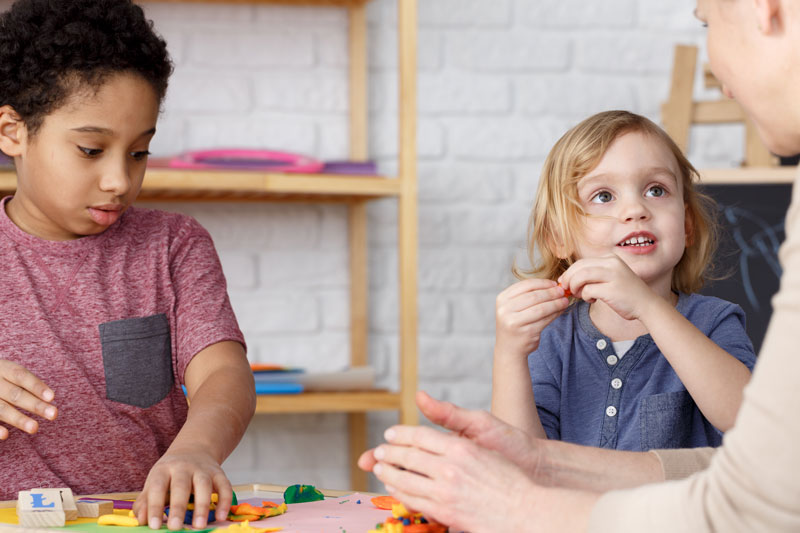Few Tips to Raise Curious Learners
The world of young children is all about wonder. As they discover new things around them, they ask questions. If you are a parent to a young preschooler, you would know what we mean. It’s very common to be asked questions like; ‘Why is the sky blue?’ or ‘where did the water in our oceans come from?’ or even ‘why does the ball come back to you when thrown in the air?’ Well, thank God for Amazon Alexa, most of your kiddo’s questions would be justified by an answer!
Asking questions and seeking answers, is a trait of positive development. Never discourage your child to ask questions. In fact, curiosity makes learning more effective and enjoyable. Let us take an example- When the teacher gets a ‘tortoise’ to class, children will admire the little creature and start asking questions. It’s more fun when children enquire ‘why does the tortoise have a shell?’, ‘why did it take its head inside the shell? ‘where does it live?’ and so on. If the teacher had to narrate the characteristics and features of the tortoise one by one without getting the creature to class, the session would be rather boring.
Curiosity stimulates the brain to learn effectively, however, only when the ‘right questions’ are asked. Do you remember the proverb ‘curiosity killed the cat’! Well, unnecessary questions, and going to the bottom of everything may be a waste of time, and therefore only positive curiosity should be encouraged.

Here are a few tips that help foster curiosity:
1. Conduct Excursions and Field Trips
Learning theoretically in the classrooms is one thing, but actually getting to know more about the ‘place’ or a ‘monument’ by visiting it in person, is a different experience altogether. Schools curriculum has subjects like; History, Geography, Arts and Culture, which can be combined with excursions & trips, so that the child’s curiosity is automatically satisfied by actually visiting the place. At the preschool level, it isn’t uncommon to schedule a visit to the fire station, hospitals, factory, post office, to teach them about community helpers and in turn get their fair of understanding by asking questions to the professionals themselves.
2. Setting-up Classroom Environment
Decorate the classroom as per the theme you are teaching that particular month. For example, if the theme is ‘farm animals’ have models of ‘cows’, ‘horses’, ‘pigs’ and others in their respective shelter homes ‘cow shed’, ‘stable’ and ‘pigsty’. Also, stick different farm equipment used by the farmers; ‘tractors’ and ‘plows’, to transform the indoor environment into a farm-like surrounding. By going around looking at these elements, children naturally get curious and start asking questions.
3. Invite Guests to Speak
Invite someone who is influential and has made a mark in life. Probably ‘an author’ can be invited to speak in class about – how he discovered his passion for writing and what keeps him motivated. A ‘pilot’ can elaborate about how he made it to the ‘cockpit’ and what were the challenges he faced while training and appearing for exams. Meeting successful people and interacting with them, may give children a different dimension to think about and start visualizing what they want to be when they grow up, thereby starting to get more curious about these professions and researching on the same. IB Schools in Dubai and across the Middle East, also have webinars where parents are welcomed to attend the sessions, to promote an inclusiveness culture within the school’s community.
4. Playing with Constructive Toys
Toys that can be assembled together to design a workable model, are often referred to as constructive toys. We all remember how our parents gave us a set of blocks, to design a ‘car’ or ‘build a bridge’ using attractive toy sets. And who wouldn’t know the famous LEGO toymaker? LEGO® Education introduces amazing kits that add to the child’s curiosity and thereby motivate them to become inventors. The LEGO® Education SPIKE™ Essential engages children to use hardware like motors and sensors to device ‘smart solutions’. In the process of constructing models, children ask many questions and need someone to answer their queries, thereby starting to understand different concepts of engineering and how ‘things are made’. To learn more about the availability of LEGO® Education’s kits in GCC and UAE regions, visit our website.

Therefore, curiosity indeed opens doors to possibilities! Allow your children to be curious explorers and gain confidence as their doubts turn into clarity.






Recent Comments